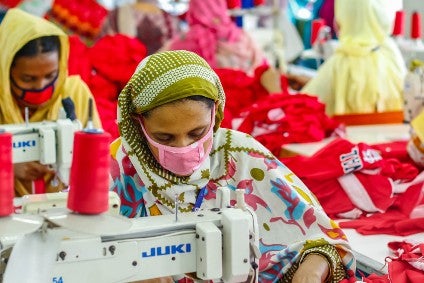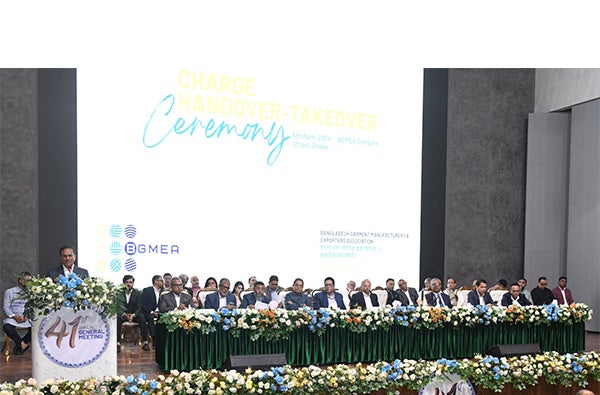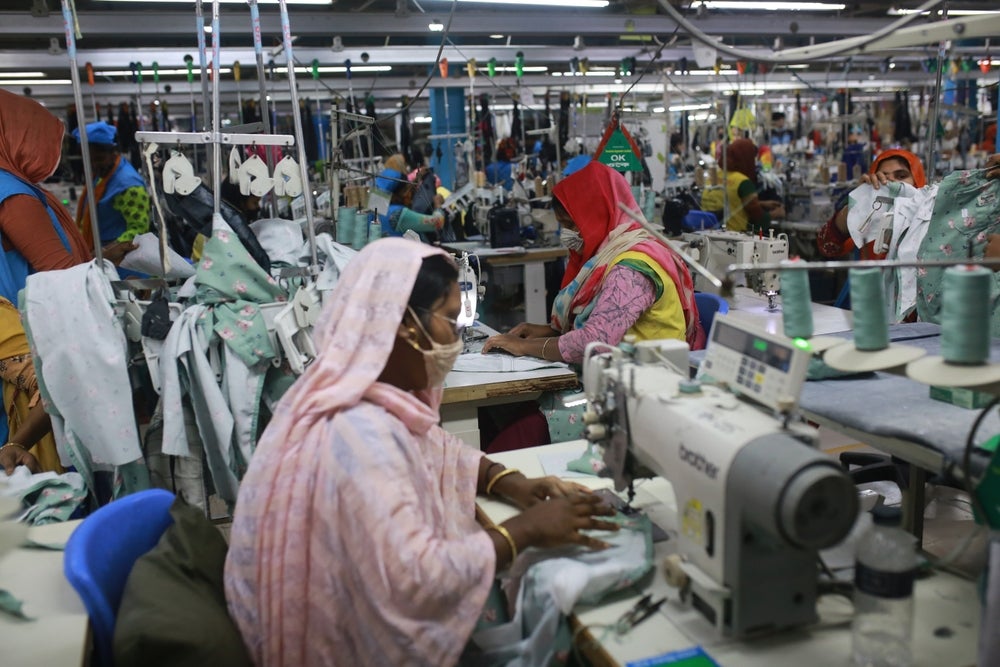
The Alliance for Bangladesh Worker Safety released its fifth and final annual report on factory safety improvements during its tenure – claiming a 93% remediation rate across factories affiliated with the programme and close to 1.6m workers trained to protect themselves in case of a fire emergency.
The Alliance was rolled out as the first of two major remedial plans in 2013 prompted by an eight-storey factory building complex collapse in Rana Plaza in 2013, which killed 1138 garment workers just months after the Tazreen factory fire that killed 120 workers. Among its signatories are Gap Inc, Sears Holdings, Kate Spade and VF Corp.
The five-year initiative aimed to improve worker safety conditions at factories in Bangladesh. It set timelines for inspections of all alliance member factories to be carried out within the first year, with members agreeing only to work with factories ensuring a safe working environment.
Its work will now be transitioned to local partners who will continue to expand the programme to additional factories in Bangladesh.
Most Alliance member brands now plan to work through a “locally-based organisation” to collectively monitor safety standards, training execution and helpline promotion in the factories from which they source. When asked if they could share details on the locally-based organisation, a spokesperson for the Alliance leadership team said details were still being finalised on the organisation and would be shared at a later date.
See Also:
“In these past five years, the Alliance, our member brands and the owners of Alliance-affiliated factories have achieved unprecedented progress toward the goal of improving safety in Bangladesh’s ready-made garment industry, while simultaneously helping to solidify Bangladesh’s standing as a global leader in garment exports,” said executive director Jim Moriarty. “Maintaining this progress must remain an ongoing effort – and for our member brands, it will remain a top priority long beyond the Alliance’s departure.”
How well do you really know your competitors?
Access the most comprehensive Company Profiles on the market, powered by GlobalData. Save hours of research. Gain competitive edge.

Thank you!
Your download email will arrive shortly
Not ready to buy yet? Download a free sample
We are confident about the unique quality of our Company Profiles. However, we want you to make the most beneficial decision for your business, so we offer a free sample that you can download by submitting the below form
By GlobalDataHighlights from the Alliance’s final report include:
- 93% of remediation across Alliance-affiliated factories is complete – including 90% of items most critical to life safety;
- 428 factories have completed all material items in their initial Corrective Action Plans (CAPs);
- Nearly 1.6 million workers have been trained to protect themselves in case of a fire emergency, and the Alliance has developed local training partners to expand the training beyond Alliance-affiliated factories.
- 28,000 security guards have been trained in fire safety and emergency evacuation procedures;
- More than 1.5 million workers now have access to a 24-hour confidential worker helpline, which has been transferred to local management under Phulki and will soon be available to RMG factories throughout Bangladesh; and,
- 181 worker safety committees have been formed, giving workers a seat at the table with management in resolving safety issues within their factories.
According to online strategic planning tool re:source by just-style Bangladesh is the world’s second-largest ready-made garment exporter, worth around US$28bn per year, thanks to its low labour costs, abundant labour, and duty-free access to western markets.
At the same time, the Alliance was launched, the five-year Bangladesh Accord on Fire and Building Safety was also rolled out. In May, the Bangladesh High Court ordered the follow-up Transition Accord to cease operation by 30 November, with a final decision due next week following a hearing on the Accord’s appeal against the order.
There are widespread concerns that the government’s Remediation Coordination Cell (RCC), which is set to step in oversee workplace safety and remediation, does not yet have the capacity to monitor and enforce inspections – with serious implications for the safety and rights of factory workers.







